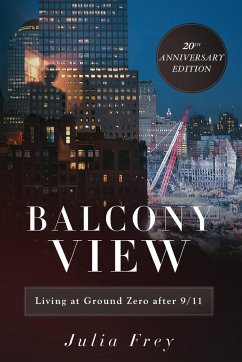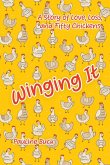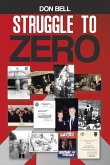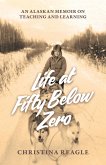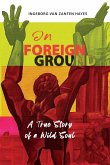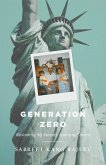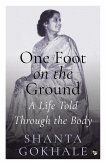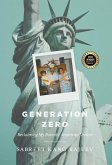Very quietly Ron said, "You know, I think the Towers are going to go. Maybe we'd better get out of here." ßWe suddenly realized that if either of the Towers fell at a certain angle, our building was directly in the line of fall. Above the raging flames, the perpendicular steel I-beams were beginning to bulge out, softening in the heat. Again his unnaturally quiet voice, "I can't stay here. If the Towers fall on us, I'll die of fright." (BALCONY VIEW - a 9/11/ Diary ) Julia Frey's account begins on September 11, 2001, as the couple decide that despite her husband's illness, they must somehow flee. They abandon his wheelchair; he is too frail to climb on a boat. Later that day, covered with ashes, they struggle home through a neighborhood pitched into destruction and chaos, to look out his study window at their new view: "the stage set for Dante's Inferno." The domino effect of one burning, collapsing building setting fire to the next one makes it clear that their own building could still go. "The electricity was out. Ron could never go down 26 flights on his rear end. We were trapped in the sky." That's when Julia decides to write it all down -- if only for the people who will find their bodies. Describing the first night in the the ruins, being evacuated, then returning weeks later, to live at Ground Zero, she discovers that their world has totally changed, yet finally not changed at all. "Our previous problems didn't magically disappear. They were just waiting for us to come back in the door." This powerful narrative of double coping -- with Ron's progressing disability and with the after-effects of 9/11 -- describes a situation the manuals don't cover -- caregiving in a disaster. Julia Frey's intense, wryly humorous 'you are there' style buoys up the diary and moves it swiftly along, catching us in a gripping, touching, brave, tender, funny story of falling towers, a failing husband and a floundering ménage à trois. "Nothing happens in a vacuum," she says, weaving in the leitmotif of a long-term love affair. Unflinchingly, she faces the ruins out the window and her own disturbing ambivalence as she sacrifices her creative and professional life to become a full-time caregiver. Ron is no angel, either. He's a self-centered, willful novelist who after convincing her to take a lover, now wants her to give him up. "What makes him think he can turn us off and on like televisions?" she wonders. Ron's own writing creates an important counterpoint to Julia's voice, as she weaves into her diary quotations from his posthumous novel, Last Fall (FC2, 2005). In a poignant Coda, another tale comes to light -- the almost supernatural coincidences between Ron's last short story and a series of events that occur after Ron dies. There is even a happy ending. Now, twenty years later, Julia's experience is no longer an extraordinary occurrence. This historical diary is important not only to historians, sociologists and psychologists helping patients recover from PTSD, but above all, to those who find themselves unexpectedly plunged into similar catastophic situations: becoming caregivers during a major emergency. The international Covid-19 pandemic and regional climate-change disasters like wildfires, tornadoes, hurricanes, repeated Gulf Coast flooding and the 2021 Texas freezes have left many unprepared peopleto deal with a very ill family member, without electricity, gas or clean water. Julia's dilemma unfortunately is no longer rare. Many people will find it comforting to know that even unheroic people manage to get through such times.

